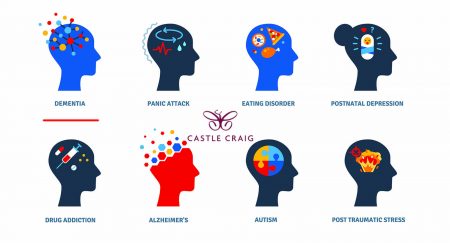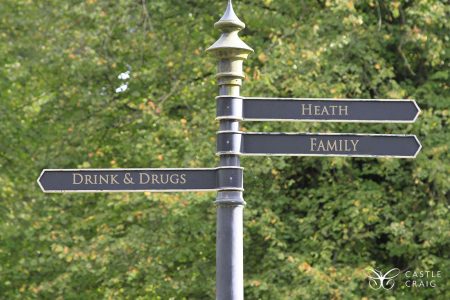Table of Contents
Alcohol can produce an uncomfortable flushing reaction in some people, as well as other symptoms. Here, we look at possible causes and concerns.
What are Hot Flushes?
Hot flushes, commonly referred to as alcohol flush reactions or hot flashes, are a physiological response that can occur after drinking. Characteristics include the sudden reddening of the skin, particularly on the face and neck, and a sensation of warmth or heat.
Other physical symptoms such as a rapid heart rate, dizziness, and sometimes nausea can also occur.
Hot flashes after drinking can be due to alcohol’s effect on blood vessels and body temperature regulation.

Treating Addiction Since 1988
Is It Normal to Have Hot Flashes After Drinking Alcohol?
While hot flushes can be normal in certain situations, such as during menopause, they can also indicate underlying health issues and alcohol misuse.
The primary cause of hot flashes is the body’s inability to metabolise alcohol effectively. When you drink alcohol, your body breaks it down into acetaldehyde, a toxic substance which is normally further metabolised into acetic acid, carbon dioxide and water, which are then eliminated from the body.
However, some people have a genetic variation that produces a deficiency in an enzyme responsible for converting acetaldehyde into acetic acid. As a result, acetaldehyde accumulates in their bodies, leading to the symptoms of a hot flush.
Hot flushes are more common in people of East Asian descent, which is why it’s sometimes called the “Asian flush.” However, it can occur in people of other ethnicities as well.
Hot flushes after drinking alcohol might therefore be a warning sign that your body is struggling to process acetaldehyde which is associated with an increased risk of alcohol-related health problems, including certain cancers, liver disease, and other alcohol-related conditions.
If you experience any physical symptoms after drinking alcohol it would be prudent to review your intake and consult a professional if you are concerned.
Hot Flashes and Sweating During a Hangover
Alcohol-related hot flashes can be just one of a number of other symptoms such as excessive sweating, high blood pressure and rapid heartbeat.
If you are experiencing severe alcohol withdrawal syndrome because of alcohol addiction or binge drinking then your symptoms may indicate serious health conditions that require medical detox.
Hot Flashes Caused by Alcohol Withdrawal
When a person who has been consuming alcohol regularly and in large quantities suddenly stops or significantly reduces their intake, they may experience a range of withdrawal or other symptoms, including hot flashes.
Alcohol withdrawal symptoms can be extremely dangerous and include:
- Hot Flashes: Sudden sensations of heat and flushing of the skin are common during alcohol withdrawal.
- Anxiety and Nervousness
- Tremors and excessive sweating
- Nausea and Vomiting
- Insomnia
- Hallucinations
- Seizures
- Delirium Tremens (DTs)

Sudden Alcohol Intolerance
Adverse reactions or symptoms when you consume alcohol can be due to various factors. Alcohol intolerance is different from an allergic reaction to alcohol, which is extremely rare. Instead, it is often related to difficulties in metabolising alcohol or other factors. Here are some potential causes of sudden alcohol intolerance:
- Enzyme Deficiency: Some people lack the enzymes necessary to metabolise alcohol properly. They may experience facial flushing, high blood pressure, night sweats or other symptoms after consuming alcohol.
- Medications: Certain medications can interact negatively with alcohol, leading to adverse reactions. For example, antibiotics, antifungal drugs, or medications used for treating chronic conditions like diabetes or heart disease can cause side effects when combined with alcohol.
- Allergic Reactions: While true alcohol allergies are rare, some individuals may experience an allergic-like reaction due to specific ingredients in alcoholic beverages. These reactions can include hives, itching, or difficulty breathing.
- Histamine Intolerance: Some people are sensitive to histamines, which are naturally occurring compounds in alcoholic beverages. Histamine intolerance can lead to sleep problems, flushed skin, and a stuffy nose after consuming wine, beer, or other histamine-rich drinks.
- Underlying Health Conditions: Certain medical conditions, such as liver disease and gastritis can affect the body’s ability to break down alcohol and cause adverse reactions.
- Changes in Diet: Consuming certain foods with alcohol can increase the likelihood of intolerance symptoms. Spicy foods, for instance, can exacerbate the blood flow and heat sensation associated with alcohol intolerance.
- Stress and Anxiety: High stress levels or anxiety can sometimes amplify the symptoms of alcohol intolerance, producing blood pressure changes, flushing, or other discomfort.
- If you experience sudden alcohol intolerance, it’s advisable to consult a healthcare professional to determine the underlying cause.
Menopause & Drinking Alcohol
Many women wonder about the effects of drinking alcohol during menopause. Here are some considerations:
- Hormonal Changes: Menopause is associated with a decline in oestrogen levels. Alcohol use can affect hormone regulation, potentially worsening some menopausal symptoms like hot flashes and mood swings.
- Bone Health: Excessive alcohol consumption can lead to bone loss, and the hormonal changes in menopause can also affect bone density. It’s important to be mindful of alcohol consumption if you are concerned about bone health.
- Heart Health: Excessive alcohol use can have negative effects on the cardiovascular system. Consult with a healthcare provider to determine what level of alcohol is appropriate for your individual health.
- Sleep Disturbances: Alcohol can disrupt sleep patterns and exacerbate sleep difficulties for menopausal women, so it’s wise to limit alcohol intake, especially close to bedtime.
- Weight Management: Some women can find it more challenging to maintain a healthy weight due to hormonal changes. Alcohol is calorie-dense and can contribute to weight gain if consumed in excess.
- Liver Function: As you age, the liver’s ability to process alcohol may decline. This means that even small amounts of alcohol may affect you more profoundly than when you were younger.
It’s crucial for women going through menopause to make informed choices about alcohol consumption. If you choose to drink, it’s generally recommended to do so in moderation. The definition of moderate drinking may vary, but it’s often defined as up to one drink per day. However, individual factors, such as your health status, personal preferences, and how alcohol affects you, should also be considered.

Download Our Brochure
If You’re Concerned About Alcohol Use
Cut Back on Alcohol Intake
If you experience hot flushes or other discomfort after drinking alcohol, it may be a sign that your nervous system or your body in general is affected. Such uncomfortable symptoms might indicate alcohol intolerance or perhaps abuse. It would be advisable to review your intake and even avoid alcohol altogether.
Speak to a Healthcare professional or Detox Specialist
If you have concerns about alcohol’s effects on your health, whether or not you drink heavily, you should consult with a healthcare professional. A detox after heavy alcohol use or withdrawal from alcohol misuse should never be attempted alone and can be life-threatening – specialist medical advice is essential.
Frequently Asked Questions:
Why Am I Getting Hot Flashes After Drinking?
This can be due to alcohol’s effect on blood vessels and body temperature regulation
What Are the First Signs of Liver Damage From Alcohol?
Fatigue, jaundice, abdominal pain, and elevated liver enzymes are common early signs.
How Do You Get Rid of Alcohol Flush Reaction?
To get rid of alcohol flush reactions, you can limit alcohol consumption, choose beverages with lower alcohol content, or take antacids before drinking.
How Long Does Flushing Last After Alcohol?
The duration of flushing after alcohol varies but typically lasts for 30 minutes to a few hours.
Is It Normal to Have Hot Flashes After Drinking Alcohol?
Hot flashes after drinking can be normal for some individuals, but excessive or persistent flushing might indicate an underlying issue.
How Do I Stop Getting Hot When I Drink?
Consider drinking water between alcoholic beverages and consuming food to slow alcohol absorption.
Can You Suddenly Become Alcohol Intolerant?
Yes, you can develop sudden alcohol intolerance due to various factors, including changes in metabolism or enzyme deficiencies.
Why Does Alcohol Cause Hot Sweats?
Alcohol can cause hot sweats by dilating blood vessels, affecting body temperature regulation.
How Do You Fix an Alcohol Flush Reaction?
To address this reaction, moderation, antacids, or taking medications before drinking can help.
Can Alcohol Flush Go Away Completely?
The flush may improve or decrease in intensity with time but might not completely go away.
What Is the Best Alcohol to Drink During Menopause?
The best alcohol to drink during menopause can vary for each person, but lower-alcohol or non-alcoholic options might be preferred to avoid worsening hot flashes.
How Do You Treat an Alcohol Flush Reaction?
To treat alcohol flush reactions, you can first try managing symptoms with antacids or consider speaking with a healthcare professional for guidance.
Why Do I Only Get Alcohol Flush Sometimes?
Inconsistent flush reactions can be due to various factors, including alcohol type, quantity consumed, and individual tolerance.
Is Alcohol Flush Reaction Common?
This reaction is common in certain populations, particularly those with Asian ancestry.
Concerned About Hot Flushes?
If you are concerned about symptoms after drinking alcohol, including hot flushes and think you might have an addiction problem of any kind, please give us a call. We are here to help, call us today on 01721 546 263 for a free confidential chat.



